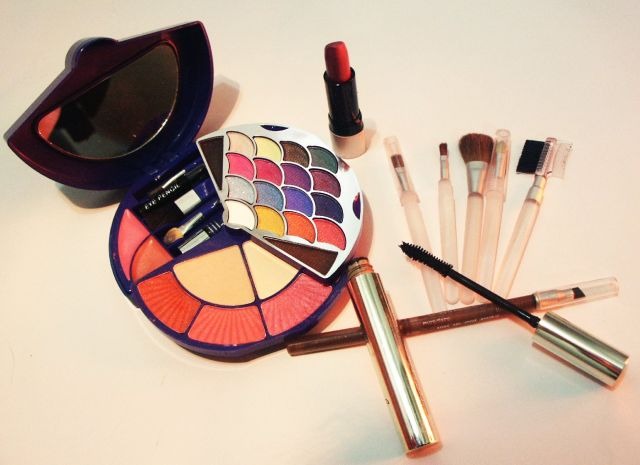A lot of things we use such as soaps, lotions, fragrances, and even make-ups contain ingredients that may or may not provoke allergic reactions to some people. Like for instance, the cosmetics that are applied to the skin are a combination of complex mixtures like fragrance, resins, pigments, sunscreens, minerals, and preservatives. They may also contain an array of exotic botanical substances like essential oils used to moisturize the skin. Although this can make our facial features stand-out, there were also some disadvantages to this, especially if you have sensitive skin that may trigger an allergy or a break-out of acne. The prevalence of make-up sensitivity may be vague for some of its affected individuals prefer to stop using the cosmetic product than consulting about it to a professional. However, the initial suspicion is that some person has sensitive skin and that their skins cannot tolerate the repeated exposure to such chemicals.
Since most people apply cosmetics or make-up on their face, it is where they usually encounter a skin reaction or inflammatory dermatitis. Women, unlike men, are prone to this since women tend to use more cosmetics than men. A rash is one of the reactions that can be distinguished as red, dry, itchy, and scaling area. Some of the common reactions were pimples, blackheads, or black spots. Ingredients in a cosmetic product usually appear on the label in order of decreasing quantity. Any of these ingredients may cause a reaction to the user’s skin, although a certain ingredient seems to be more likely to cause a problem.
The best thing to do to avoid these negative reactions is to test the cosmetics before applying them directly to the face. To do this, you can use the product over three to four days on the forearm skin. If a reaction appears, a person may consult the dermatologist who can perform a further test that will determine the cause of allergy or reaction. After determining the ingredient that caused the reaction, one can avoid the product with an allergenic component. Mild cosmetic reactions may be resolve by not using the product that causes the reaction. However, reactions that are more serious will be needing treatment from a skincare professional.
The best way to avoid cosmetic reactions is to avoid cosmetics entirely. Another option is to use a product with a minimal ingredient. Some cosmetic products may have a label containing unscented or fragrance-free. This label is important to distinguish since the unscented products usually contain fragrance chemicals that disguise their odor. Meanwhile, fragrance-free cosmetics must not contain fragrances entirely. However, consumers must also be careful in choosing a product. There are some products that use enticing words and terms as a marketing tool. One example of this is the word hypoallergenic which claims that these types of products are soft and gentler on the skin, and less likely to cause allergic reactions,
The term hypoallergenic was first used in 1975. It was when the term became popular that the FDA had regulated the term stating that a product must only be labeled hypoallergenic if a scientific study had proven that it has a lower rate of adverse skin reaction. Although it claims that it has a lower rate of adverse skin reaction, the Food and Drugs Administration advises that consumer must know that there is no regulation or standard regarding the use of the term ‘hypoallergenic.’ This means that the decision as to who labeled the product ‘hypoallergenic’ depends on the manufacture itself without any proof that the product causes less allergic reactions.
With that, we can safely say that it is important to test the product first before using it directly to a larger area of skin. Even though there is no government body that certifies the non-allergenicity of a product, the manufacturer is still liable for ensuring that their product is safe. Also, distributors or manufacturers need to make sure that the label states all the things that their customers need to know regarding the product. In addition to that, FDA can take action if the manufacturer of a cosmetic product does not meet the legal requirement for safety.


